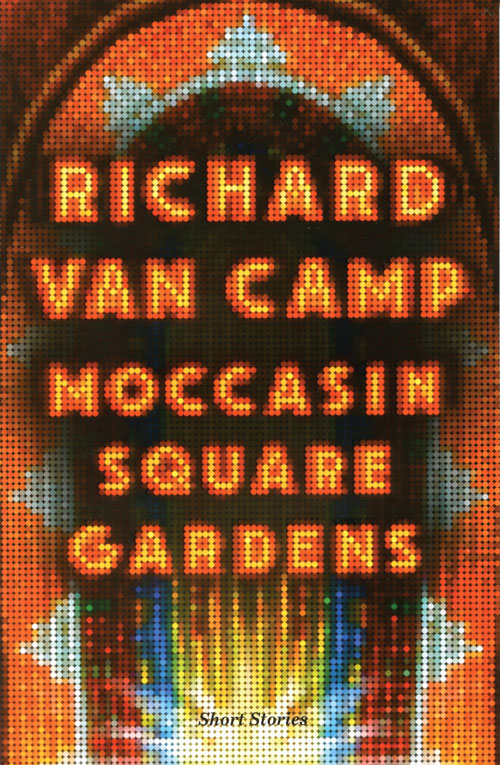
by Richard Van Camp
Douglas & McIntyre
2019/$19.95/160 pp.
Richard Van Camp’s latest story collection, Moccasin Square Gardens, delves into the complexity and seriousness of today’s problems, but does so with the author’s characteristic (and welcome) humour. This starts with the title—a message about the collision or possible conjunction of cultures—and continues in the epigraph, a quotation from Van Camp’s mother: “First punch has to be real good.”
In the first story, “Aliens,” the narrator tells the story of Jimmy, a young man in a future where “Star People” are helping humans by cleansing the world. Jimmy has a quiet life in Fort Smith, NWT; the narrator only learns the extent of the man’s wisdom and experience after Jimmy becomes involved with Shandra, the narrator’s niece. She tells her friend, Roberta, that Jimmy is “different.” Roberta assumes Jimmy is “hung like a horse” and tries to muscle in on the relationship. But the narrator decides Jimmy is “Aayahkwew, neither man nor woman but both” and “a modern-day shaman.” It’s the perfect story to start with as the gentle yet bawdy humour opens up possibilities of acceptance.
Disturbing social issues do emerge in these stories, but Van Camp doesn’t fall into the us/them trap. He recognizes the utter mess of things but indicates complicity on the part of some First Nations individuals, such as chiefs who wield power for their own benefit. There’s no romantic stereotyping of Indigenous people in these stories; instead there’s a powerful understanding of the varieties of human belief and behaviour.
“Super Indians,” for example, is an account of how things get done in a small community when the chief runs things his way. Danny spends much time travelling to and from Ottawa. The narrator, a young man and daydreamer, says, “Chief Danny has outlasted my dad and popes, prime ministers, premiers. He is old school down and dirty.” Danny protects his job as land claims negotiator by backing off any time a deal gets close. The narrator says, “What I love most about Fort Simmer is we’re small enough that anyone can make a difference.” And he does, by tricking Danny. This backfires somewhat, so the narrator decides to devote his life to “uncolonizing Chief Danny.”
Van Camp has a remarkable way of weaving popular culture into his stories of love, identity and struggle. His characters play video games and hockey. His humour softens the ugliness and destruction, and his language is folksy and idiosyncratic, making the stories accessible and full of life. They are a gift.
—Candace Fertile teaches English at Camosun College.
_______________________________________

